Nov 2016 2nd Edition
Nov 2016 2nd Edition Estelle Greeff
Translations
R9 billion more for NSFAS
R9 billion more for NSFAS Estelle GreeffFinance Minister Pravin Gordhan says financing higher education remains a top priority for government.
 The Minister announced the 2016 medium-term budget at the National Assembly recently.
The Minister announced the 2016 medium-term budget at the National Assembly recently.
The medium-term budget is used to outline government interventions to tackle economic challenges and spending priorities over a three-year period.
Minister Gordhan said that while access to education had increased over the years, there were not enough resources to fund it. As a result, many students face financial hardships.
“In addition to the R16 billion added to higher education funding in the February budget, we propose that a further R9 billion is allocated to the National Student Financial Aid Scheme
(NSFAS) in the period ahead, raising its funding by over 18 percent a year,” he said.
The Minister added that over R8 billion will be used to meet the costs of fee increases for students from households with incomes up to R600 000.
“We will work with the corporate sector and financial institutions to expand bursaries, loans and work opportunities for students.
“In seeking a balanced, sustainable roadmap for student finance, we appreciate that graduates who go on to earn higher incomes will in due course contribute a share of these gains to the next generation,” he said.
Meanwhile, Higher Education and Training Minister Dr Blade Nzimande welcomed the additional funding.
He said that with the additional funding, government will be able to extend its reach to NSFAS deserving students who have tended to “fall through the cracks”, despite the enormous investment that government has made since 1994.
“We have funded 1.7 million students since NSFAS started, at a cost of just over R59 billion. This was a huge commitment,” he added.
Higher Education and Training budget allocation
2013/14 – R34.3 billion
2014/15 – R36.9 billion
2015/16 – R41.8 billion
Child support grant increase
Child support grant increase Estelle GreeffBudget
National Treasury is boosting efforts to ensure that children are shielded, as much as possible, from poverty.
 Social Development Minister Bathabile Dlamini has welcomed interventions from the National Treasury aimed at providing a social security net for the poor.
Social Development Minister Bathabile Dlamini has welcomed interventions from the National Treasury aimed at providing a social security net for the poor.
She was reacting to Finance Minister Pravin Gordhan’s announcement that the child grant has been increased to R360 from 1 October 2016.
In an interview with Vuk’uzenzele, the Minister said it was important for government to introduce a number of ways to tackle problems to ease the burden on the poor.
“We need to arrive at a stage where we will be able to balance and not think that solving one problem will solve all other problems.
“A grant is part of a basket of services that is received by the children. But what is more important is that at social development, we are focusing strongly on Early Childhood Development (ECD), which is the basic stage of a child,” she said.
Cabinet has approved an extended child support grant for children who have lost both parents, and are in the care of extended family members.
The grant, which could be implemented in 2018/19, brings the income protection afforded to these
orphans closer to parity with that provided to orphans in foster care.
A second conditional grant will expand ECD services and the maintenance of related infrastructure. The National Treasury is working with the Department of Social Development on a strategy to guide future financing for ECD.
Support for education, health, farming
Support for education, health, farming Estelle GreeffBudget
Government has committed to funding education, health and farming programmes to boost skills, ensure a healthy society and create jobs.
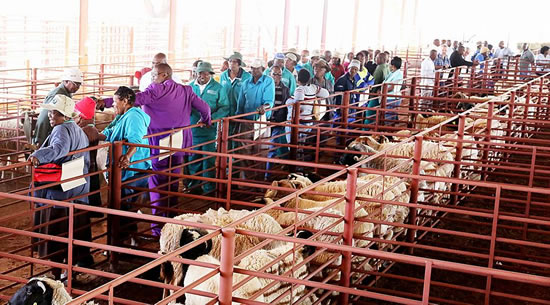 The National Treasury said over the next three years, government will roll out the Second Chance Matric Programme.
The National Treasury said over the next three years, government will roll out the Second Chance Matric Programme.
This offers learners, who wrote Grade 12 exams after 2008 and did not pass, an opportunity to earn a national senior certificate.
“An early-grade reading assessment will be launched to solidify learners’ reading proficiency in their home language, and ensure an easier transition to using English as a language of learning and teaching in the intermediate phase,” the National Treasury said.
Through the school infrastructure backlogs grant, the department expects to replace 510 inappropriate and unsafe school facilities by 2018/19. Over the same period, the grant will fund water provision for 1 120 schools, sanitation for 741 schools and electricity for 916 schools.
Funding for Health
More will also be spent on health to support the expansion of the HIV and AIDS programme, in particular antiretroviral treatment, which now reaches 3.5 million people.
“Government has adopted the 90-90-90 HIV and AIDS targets - 90 percent of people living with HIV know their status, 90 percent of those who know their status have been
introduced to antiretroviral therapy, and 90 percent of those receiving treatment have suppressed viral loads,” the National Treasury said.
The National Treasury also announced the following:
- Increases in the National Health Insurance conditional grant to continue the contracting of general practitioners and bring professional capacity into the School Health Programme.
- A new conditional grant for the employment of social workers to be introduced, with effect from the next financial year.
- Funding for 39 000 Funza Lushaka bursaries for prospective teachers. The bursaries will go to teachers in priority subject areas, such as mathematics, science and technology.
Support for farmers
The National Treasury announced that farmers will get more support to help boost job creation and grow the sector.
Several government departments are working to improve the coordination of farmer support programmes.
This will eliminate existing overlaps and double-dipping of funding from the agriculture and rural development departments.
“National and provincial government reprioritised R1.6 billion towards emergency funding for drought-relief initiatives between April 2015 and June 2016,”.
News in brief - Nov 2016
News in brief - Nov 2016 Estelle GreeffSARS officially opens state-of-the-art George branch
The South African Revenue Service (SARS) has officially opened a new state-of-the-art branch in George, in the Western Cape, which offers free Wi-Fi to taxpayers.
Opened by SARS Commissioner Tom Moyane recently, the George branch is the first SARS branch in the country to offer free Wi-Fi to tax-payers.
At the branch taxpayers can eFile or use the eFiling App from their tablet or phone and file their tax return.
Lesotho water project phase II to be completed in 2025
The Lesotho Highlands Water Project (LHWP) Phase II is envisaged to be completed in 2025.
Water and Sanitation Minister Nomvula Mokonyane made the announcement in parliament recently.
The Minister said the project will ensure that the country is better equipped to deal with the effects of climate change.
Budget moves South Africa forward
Budget moves South Africa forward Estelle Greeff
Five thousand jobs unlocked in the oceans economy; R8 billion to meet the costs of fee increases for students from households with incomes up to R600 000, and the provision of social grants to just under 17 million South Africans who need them the most. These are just some of the ways in which South Africa is moving forward, and these achievements or targets are the T&Cs of the Medium Term Budget Policy Statement (MTBPS) – or “mini-Budget” – as it is popularly known recently presented to Parliament by the Minister of Finance, Pravin Gordhan.
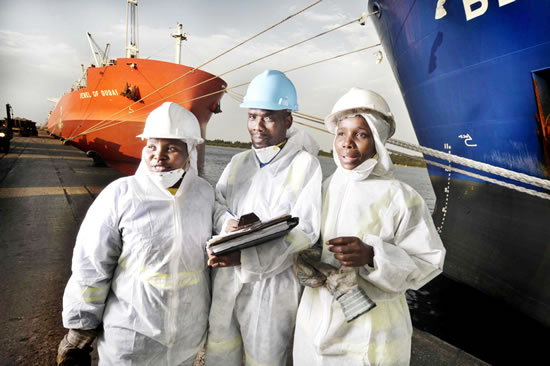 The “mini-Budget” reflects the key decisions taken by Cabinet to balance economic growth and social priorities in the country at a time when our own economy and the global economy remain in stormy seas.
The “mini-Budget” reflects the key decisions taken by Cabinet to balance economic growth and social priorities in the country at a time when our own economy and the global economy remain in stormy seas.
This Budget spells out how government will spend money in the coming three years and gives us an impression of the better future we are hoping to create as government, business, labour and civil society work together.
At the same time, this update of the Budget first presented in February also reflects the progress made across government since the start of the financial year on 1 April 2016 in using public resources to create a better life for all South Africans.
As part of our Oceans Phakisa – a mega-project to explore and exploit the economic value of our 3 000km shoreline –
5 000 jobs have been unlocked in the oceans economy. This has been made possible by the investment of some R17 billion in a sector where government has issued licences for oil and gas exploration to stimulate growth.
This achievement tells us that our country has the necessary skills, technology and partnership between government and the private sector to succeed in a venture on this scale.
Government will be making available a further R9 billion for the National Student Financial Aid Scheme over the period ahead. This will increase its funding by nearly 20 percent a year.
We will also be spending more than R8 billion to meet the costs of fee increases for students from households with incomes up to R600 000, or R50 000 a month.
My thanks goes to all South Africans – including our 1.3 million public servants – whose hard work and goodwill are shaping our good story.
Major infrastructure programmes over the next three years include over R300 billion in transport and logistics projects, R240 billion in the energy sector and R137 billion in water and sanitation – all of which will be examples where money spent by government creates opportunities in the private sector and ultimately leads to more South Africans being employed.
The documents behind the Budget tell us how, across government, we are making a positive difference in the lives of ordinary South Africans.
The Department of Social Development reports that by the end of September 2016, 16.9 million beneficiaries were receiving social grants.
The department exceeded its annual target for the screening of persons working with children against the child protection register, with 61 245 persons being screened by the end of the first half of 2016/17. This a great source of comfort for parents concerned about the safety of children who are entrusted to care by other people daily.
The Department of Health reports that 3.45 million patients continued to receive antiretroviral treatment at the end of July 2016. Although lower than anticipated in relation to the target, the number is expected to rise from September 2016 onwards, when the universal test and treat approach was implemented.
This method has been proven to significantly reduce the chance of an HIV-positive person passing the virus to others when they are on treatment and their viral loads are undetectable.
From the Department of Justice and Constitutional Development we learn that the number of criminal cases on the backlog roll in the lower courts was 27 357 against the annual target of 31 942.
The department is on course to surpass its annual target due to the improvement of collaboration and engagement with other departments in the justice, crime prevention and security cluster.
From the same cluster, the Asset Forfeiture Unit reports that it has, in the past six months, completed 213 cases involving assets valued at R263.7 million and obtained 128 freezing orders to the value of R187.1 million. For the value of completed forfeiture cases, the unit has surpassed the annual target of R230 million, mainly due to the finalisation of high-value cases.
There are many other examples from departments that show that the Budget tells the story of a South Africa changing for the better day by day.
Nellmapius residents get new houses
Nellmapius residents get new houses Estelle GreeffLocal government
For a long time Queen Mnguni (54) shared a backroom with her two children in her parent’s yard. Sharing the living space was challenging enough for the family of three, but when she lost her eyesight, over ten years ago, it made things even more difficult.
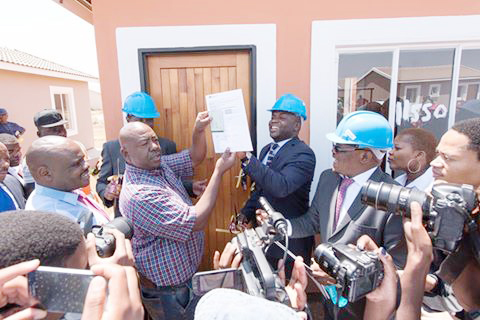 “It was not nice to stay in a backroom at my parent’s house at the age of 54 because I felt deprived of my diginity,” said Mnguni.
“It was not nice to stay in a backroom at my parent’s house at the age of 54 because I felt deprived of my diginity,” said Mnguni.
Mnguni’s life has changed for the better as a result of a partnership between the City of Tshwane and the Gauteng Department of Cooperative Governance and Traditional Affairs.
“I am very excited now because God has answered my prayers. I would like to thank the government of Gauteng for giving me a place I can call home,” said Mnguni.
Mnguni is one of many beneficiaries of the Nellmapius Extension 22 housing project.
The project forms part of the Mega City Projects in the Tshwane East Node and comprises of low-cost housing units for military veterans and rental stock.
The City of Tshwane also unveiled a high-rise dwelling housing project in Mamelodi East shortly after handing over 74 houses to residents in September.
The city, through the funding received from province, is embarking on phase two of construction, which comprises of 180 units.
“The objective was to come up with affordable, attractive and innovative responses to the urgent need for houses,” said Member of Mayoral Committee Mandla Nkomo.
The beneficiary administration for phase two continues as per the allocation criteria applied in phase one.
This means that recipients of the constructed units will be from Mamelodi and Eersterust, who were registered on the housing demand database between 1999 and 2000.
The city has also taken a decision to allocate five percent of the units to people who fall under the category of special needs, which is in line with the National Housing Code. This category includes the elderly and people with disabilities.
Scholarship fund for eThekwini youth
Scholarship fund for eThekwini youth Estelle GreeffLocal government
Students from eThekwini may be able to realise their dream of studying overseas as a result of the recently launched KwaZulu-Natal Youth International Scholarship and Student Exchange Programme (KZNYIS).
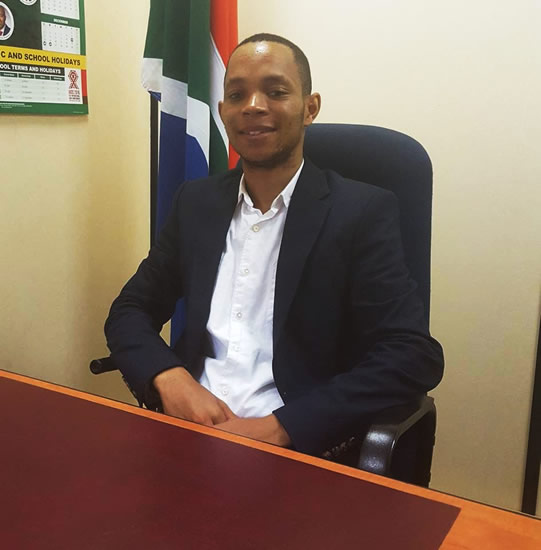 The scholarship is a partnership between the Premier’s Office, eThekwini Municipality, the Department of Education and the African Renaissance Trust.
The scholarship is a partnership between the Premier’s Office, eThekwini Municipality, the Department of Education and the African Renaissance Trust.
Scholarship recipient Minenhle Mazwi Mbandlwa, who is studying towards his Master’s Degree in Global Studies at Doshisha University in Japan, is grateful for the opportunity.
“Studying abroad is the best opportunity to acquire knowledge that is applicable in the South African context,” said Mbandlwa, who comes from a poor background could not afford university fees.
“I heard about the bursary from my cousin who needed help to write a motivational letter for one.
“I was lucky I was awarded a scholarship.”
Mbandlwa graduated in 2012 with a bachelor’s degree in social sciences and enrolled for an honour’s degree in government business and ethics in 2014.
“Later in 2014 I applied for an international scholarship through the Office of the Premier. My application went smoothly and I was awarded the scholarship in 2015, after a few tests, interviews and proposal screening.”
Mbandlwa said studying abroad has opened his mind.
“The education system in Japan connects the modern world and traditional values, making it possible to bridge the gap between theory and practice.
“I am a global citizen flying the South African flag with pride.”
KwaZulu-Natal Premier Willies Mchunu said the programme will assist students and help uplift communities.
“We want young people in our province to have access to education to achieve socio-economic transformation, thus eliminating poverty, unemployment and inequality,” he said.
Councillor Zanele Ndzoyiya from the Governance Committee said that the municipality is passionate about youth development and has budgeted accordingly.
“During the 2016/17 financial year we have set aside more than R100 million for youth programmes,” she said.
*Romita Hanuman works for the eThekwini Municipality.
For more information visit www.kznyis.gov.za to view and apply for international scholarships, contact KZNYIS at 033 395 2978, or visit the Office of the Premier at Natalia Building, 330 Langalibalele Street, Pietermaritzburg.
Economic development counts
Economic development counts lebangBudget
Government has forged partnerships with the private sector to avoid a recession and to create jobs, despite the tough economic times.
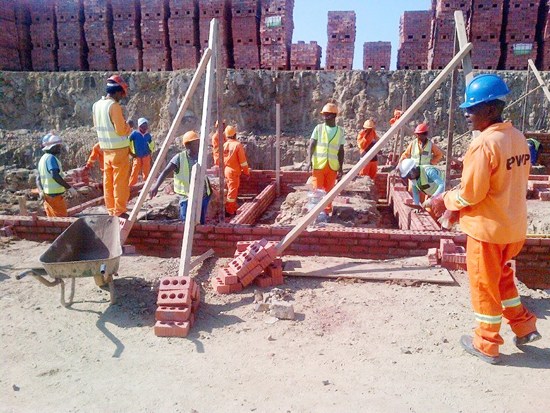 Economic Development Minister Ebrahim Patel said even though global growth remains subdued and South Africa’s economy grew at less than desirable levels, progress has been made.
Economic Development Minister Ebrahim Patel said even though global growth remains subdued and South Africa’s economy grew at less than desirable levels, progress has been made.
Government already had a strategy in place in 2010 to recover jobs that had been lost during the global economic meltdown that hit markets in 2008.
In the department’s annual report for the period that ended in March 2016, Minister
Patel said since the adoption of the Growth Path Framework in October 2010 to the end of the 2015/16 financial year, roughly two million more people have found employment.
“During 2015, the country’s Gross Domestic Product reached the R4 trillion mark for the first time.
“However, our attempts to accelerate job creation have faced stronger headwinds in the past year and performance has slowed.”
In the 12 months leading up to March 2016 204 000 jobs were created, but the number of unemployed grew by 179 000 as a result of more people looking for work than the number of new jobs created.
This means that by March 2016, unemployment stood at 26.7 percent and the total number of employed was
15.6 million.
Over the past year, government invested R1 billion per working day in infrastructure.
These public investments have made a significant impact on providing critical economic and social infrastructure for the country, from energy and roads to schools, clinics and student accommodation, the Minister said.
The country’s National Infrastructure Plan has 18 Strategic Integrated Projects (SIPs) that combine hundreds of projects for better coordination and
implementation and resulted in more than 200 000 direct jobs in the past year.
Minister Patel said over the past year the department worked with the Industrial Development Corporation (IDC) to support the development of new industries and businesses.
In the period under eview, the IDC approved R14.5 billion in new funding and disbursed R11.4 billion to partner companies.
“This funding has created and saved more than 15 000 jobs. It is also attracting further private sector capital into industries, such as green energy, tourism, agro-processing,
automotive components and steel,” he said.
Growing the economy, creating jobs
Growing the economy, creating jobs lebangBudget
Finance Minister Pravin Gordhan said with weaker economic conditions expected for the rest of 2016, government departments will be asked to spend from their existing budgets over the next three years and prioritise resources to fund social programmes.
The Minister said this when he tabled the medium-term budget policy statement recently.
The medium-term budget takes into consideration the state of the economy, and proposes ways to guide the country on a better growth path.
“There are many other programmes and policies which are vital for our growth.
“With careful attention to sustainability and inclusivity, they will contribute to employment and the broadening of economic opportunities,” he said.
The Minister added that government is revising regulations that will see small businesses get a share of all of the contracts awarded by government. This will reserve work for designated groups.
“A Public Procurement Bill is being finalised. It will strengthen accountability and oversight in supply chain management, while providing flexibility and promoting
empowerment, small enterprise development and job creation.
“The Preferential Procurement Regulations are being revised to ensure that at least 30 percent of government procurement goes to designated groups, including small and medium enterprises, cooperatives and rural and township enterprises,” he said.
In terms of job creation, the Minister said that government aims to create six million short- to medium-term jobs through the Expanded Public Works Programme, increase statutory workplace inspections by the Department of Labour, and promote industrial development and trade.
Government expects to roll out the Community Work Programme in every municipality by March 2017, he added.
Over the next three years, the Jobs Fund is expected to spend R3.7 billion on projects that create permanent jobs.
While spending on the fund has been slow, it has created permanent employment at a cost of R52 000 per job, which compares favourably with other government programmes.
Councillor’s home a medicine pick-up point
Councillor’s home a medicine pick-up point lebangA councillor in KwaZulu-Natal is contributing to the healthcare of people in his community.
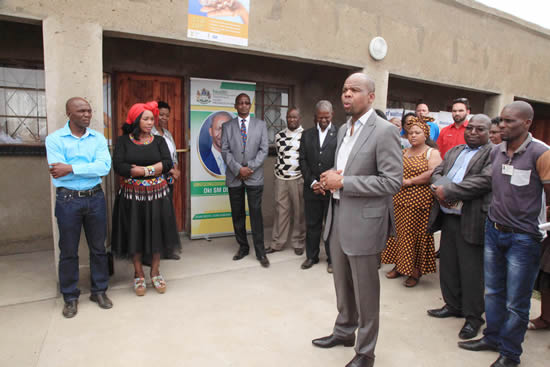 The love of community work has led ward councillor Greaterman Thwala to open up his home to be used as a pick-up point for chronic medication in Mndozo, Newcastle, KwaZulu-Natal.
The love of community work has led ward councillor Greaterman Thwala to open up his home to be used as a pick-up point for chronic medication in Mndozo, Newcastle, KwaZulu-Natal.
His house is now known as the Philakahle Pick-up Point. Philakahle means live well in isiZulu.
“As a councillor, I enjoy helping others as it is part of community work. I am happy to be able to help my community, especially since poverty is a serious challenge in the area.”
He added that some community members can’t afford transport money to go to the nearest clinic to fetch their chronic medication.
Thwala’s gesture forms part of the Department of Health’s Central Chronic Medicine Distribution and Dispensing (CCMDD) Programme that makes it possible for stable patients to collect their medication from a pick-up point near their home or work, saving time and money.
The Philakahle Pick-up Point is open Monday to Friday from 7am to 4pm, for patients registered with the Department of Health to pick up their chronic medication.
“We receive 30 to 40 patients a day who come for a variety of medications, ranging from ARVs and medication for mental illness to those for diabetes and hypertension.”
The pick-up point is supported by assistant pharmacists, trained by Khethimpilo Non-Governmental Organisation. A system installed by Medi-Logistics detects patients who do not collect their medication and they can be tracked down by community caregivers.
KwaZulu-Natal Health MEC Sibongiseni Dhlomo said Thwala’s efforts benefit the patients and the department.
“Most stable patients are not required to travel to a health facility monthly to collect their chronic medication.
“It also assists the department to decongest public clinics, which provides space and time for nurses and doctors to attend to emergency cases,” said MEC Dhlomo.
The MEC added that people across the province should inquire from their clinics about where to register to get enrolled at pick-up points closer to their homes.
Fast fact
KwaZulu-Natal has 256 673 patients accessing care through pick-up points.
Get tested for diabetes
Get tested for diabetes lebangDiabetes is on the rise in South Africa and the world, but early diagnosis and treatment can help to prevent dangerous complications.
 Diabetes occurs when the body fails to process glucose correctly. Glucose comes from the food we eat. Many people have diabetes mellitus, but remain undiagnosed.
Diabetes occurs when the body fails to process glucose correctly. Glucose comes from the food we eat. Many people have diabetes mellitus, but remain undiagnosed.
Diabetes type 1 is a progressive autoimmune disease usually diagnosed in children and young adults; whilst diabetes type 2 can be caused by unhealthy lifestyle choices and usually starts in adulthood. Women can also develop gestational diabetes when they are pregnant. It is possible to live a healthy life by identifying the symptoms of diabetes early, receiving proper medical care and making healthy lifestyle changes.
World Diabetes Day is commemorated every year on
14 November. This year’s theme is ‘Eyes on Diabetes’. The aim is to encourage
individuals to have themselves tested for diabetes and insulin resistance and to raise awareness about the disease.
What causes diabetes?
Diabetes is often caused by a poor diet, which is high in fat and carbohydrates. Refined, sugary foods can contribute to type 2 diabetes, by causing weight gain.
Over three million South Africans are affected by either type 1 diabetes, which is often an inherited condition; or type 2 diabetes, which results when not enough
insulin is produced or the body fails to react to it.
Uncontrolled diabetes can lead to kidney failure, cardiac arrest, amputations and stroke, among other complications.
Common signs and symptoms:
- Unusual thirst
- Frequent urination
- Unusual weight loss
- Lack of energy
- Blurred vision
- Frequent or recurring infections
- Cuts and bruises that are slow to heal, boils and itching skin
- Tingling and numbness in the hands or feet.
These symptoms may not all be present, as they differ from person to person. If you have these symptoms discuss them with your doctor.
*Supplied by Government Employees Medical Scheme.
Tips to help control diabetes:
- Don't miss or delay meals
- Monitor your blood sugar as directed by your family practitioner
- Measure medicine carefully and take it on time
- In consultation with your doctor, adjust your medication or eat additional snacks if you increase your physical activity.
- Visit your nearest clinic to get tested.
Farming method yields good results
Farming method yields good results lebangLocal government
An innovative way of farming has been introduced in Johannesburg that will see people farming from the rooftops of buildings.
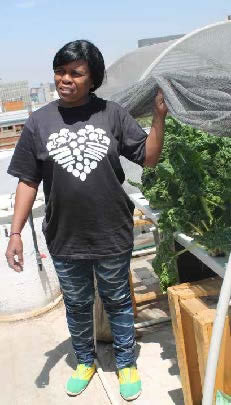 Unlike the traditional way of farming, which requires one to have a piece of land, hydroponic farming is a method which entails growing plants, fruit and vegetables using mineral nutrient solutions in water, without soil. The method, which uses less water, also recycles the water used when watering one’s garden initially.
Unlike the traditional way of farming, which requires one to have a piece of land, hydroponic farming is a method which entails growing plants, fruit and vegetables using mineral nutrient solutions in water, without soil. The method, which uses less water, also recycles the water used when watering one’s garden initially.
This farming method is already being used in Hillbrow, Johannesburg, and will enable people to farm fruit and vegetables throughout the year.
The project is a partnership between the City of Johannesburg and Ubuntu Business.
The hydroponic farming method addresses the lack of farming in urban spaces, the growing demand for food globally and the challenges presented by climate change.
Catherine Khambule, a hydroponic farmer, and other beneficiaries have produced more than 800 kg of vegetables so far. The vegetables are either sold or donated to underprivileged individuals or organisations.
“I decided to venture into farming because agriculture is the highest provider of food and, without farming, the human race cannot survive,” said Khambule.
Another farmer, Tiny Ngubeni, who was absorbed into the training project, said she loves farming but was never really successful at it.
“I started enjoying how to farm the minute I started using this method. It takes up less resources and our vegetables grow quickly,” said the mother of two, who added that the project enables her to put food on the table.
Speaking to Vuk’uzenzele, hydroponic farming training facilitator and Ubuntu Business founder Gary Smith said through the partnership with the City of Johannesburg and other strategic partners, a pilot project had been set up, with which they hope to build a network of inner city rooftop vegetable cultivators.
“We teach and empower entrepreneurs to start and grow their own profitable and sustainable businesses.
“We recruited a team of 22 beneficiaries and took them though a six-month training programme in which we focused on operations, marketing and finance to help start up viable farming entrepreneurs,” said Smith.
City Power gives youth opportunity
City Power gives youth opportunity lebangLocal government
City Power is boosting efforts to create job opportunities for young people.
The lives of 24 young people will change for the better as a result of City Power’s programme to recruit inexperienced graduates and give them a chance to enter the job market.
The engineering students will form part of City Power’s effort to create employment for young people and produce certified engineers over the next three years.
The training programme will not only benefit graduates but will also benefit City Power, as it plans to respond quicker to service disruptions and improve performance efficiencies while ensuring skills transfer.
Managing Director for City Power Sicelo Xulu said the response from young people across the country was satisfactory.
“Almost 200 qualified engineers came to our offices. It was disheartening to see how many young people are sitting at home with degrees, unable to find work.
“There are not enough professional engineers in the country. This initiative is not just good for City Power or the Engineering Council of South Africa, ultimately it will raise the competency levels of engineers in the country. We need other energy utilities to join the cause by providing on the job training.”
The programme is designed to challenge other utilities to follow suit and hire young minds to assist in elevating the sector through professionalisation.
National Treasury has allocated R7.7 million for the programme, which will be used as remuneration for the learners during the course.
The programme is designed for individuals who wish to be registered as professional engineers. By participating in the programme learners will become recognised as professional Engineering Council of South Africa (ECSA) members.
In order to qualify for professionalisation, applicants must possess accredited qualifications in the engineering field.
“Employers are increasingly requiring registration with ECSA as a prerequisite for appointment to certain engineering positions. Graduates that have not registered with the professional body will find it difficult to find jobs in the engineering sector.
“This programme is not only a job opportunity for previously unemployed youth, but also elevates learners’ existing qualifications. The successful implementation of this programme may encourage National Treasury to give us more funding for a larger intake next year,” said Xulu.
City Power plans to continue recruiting new graduates after it has selected the top 24 learners who will participate in the programme this cycle.
For more information call: 011 490 7573
Empowering people living with disabilities
Empowering people living with disabilities lebangDisability Month
A non-profit organisation is giving visually impaired people and those living with disabilities in Mzingazi, on the north coast of KwaZulu-Natal, the opportunity to gain skills and live better lives.
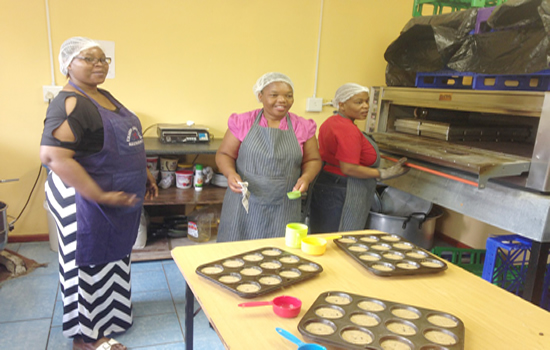 Nawe Zifunze Disabled Association (NAZIDI), established in 2004, has 80 members. Nawe Zifunze means “you are capable of feeding yourself” in isiZulu.
Nawe Zifunze Disabled Association (NAZIDI), established in 2004, has 80 members. Nawe Zifunze means “you are capable of feeding yourself” in isiZulu.
The organisation discourages people living with disabilities from seeking hand-outs, but to rather learn skills so that they can make a meaningful contribution to the economy and earn an income.
The association trains visually impaired people and those living with disabilities in sewing, baking, gardening, beadwork and the repairing of wheelchairs.
The chairperson of the association, Paradise Jali, who is also living with a disability, said the association aims to encourage people to see beyond their circumstances.
“The fact that we are living with disabilities doesn’t mean that we cannot do things for ourselves. We can open and run our own businesses and excel in what we do, if we are given skills,” he said.
The association started as a gardening project.
“I realised that many disabled people did not have enough food in their homes so we started planting and growing vegetables, such as spinach, carrots, beetroot and onions. As our members grew, we decided to do other things apart from gardening,” he said.
Today the organisation runs a soup kitchen after school for orphans and vulnerable children, a poultry project, an Internet cafe and sewing projects. It also distributes food parcels and clothing to disadvantaged people and provides life skills and computer training.
“We also teach crafts, such as beadwork. We assist disabled people in the community with assistive devices, such as wheelchairs and walking sticks. We assist and then refer people with applications for social grants to the Department of Social Development,” he said.
Richards Bay Industrial Development Zone (RBIDZ) recently donated sewing machines to the organisation.
“Growing skills and the income potential of less fortunate people is an important aspect of nation building to which the RBIDZ is committed,” said Khanyi Dlamini, the RBIDZ Special Projects and CSI Manager.
KZN Society for the Blind changing lives
KZN Society for the Blind changing lives lebangDisability Month
The KwaZulu-Natal Society for the Blind is making a difference in the lives of visually impaired people in the province, with more than 200 visually impaired people now able to provide for their families.
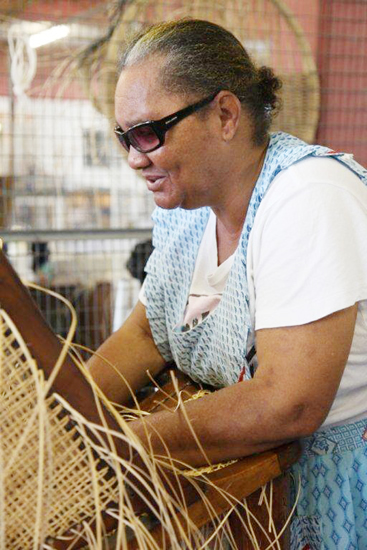 The society trains visually impaired people (including the partially and completely blind) in the production of cane furniture and baskets and assists them to sell their products for a profit. It also has an early childhood development centre for visually impaired pre-schoolers and offers braille literacy and telephony training.
The society trains visually impaired people (including the partially and completely blind) in the production of cane furniture and baskets and assists them to sell their products for a profit. It also has an early childhood development centre for visually impaired pre-schoolers and offers braille literacy and telephony training.
Speaking to Vuk’uzenzele, Kenneth Ngwenya, the manager of the cane workshop, said people are empowered with skills, which helps them to open their own businesses.
“The cane workshop has been training people as cane weavers for the past six years and there are 64 qualified weavers on site in Umbilo.
“The workshop offers a variety of cane items for sale to the public, including furniture such as coffee tables, chairs, sofas and cribs,” said Ngwenya.
Nonhlanhla Ngidi, an employee in the furniture section, joined the society in 2010. She lost her eyesight in 1990 after both eyes were severely affected by cataracts. Being part of the society has assisted her to do something with her hands to improve her life.
“I am able to earn money to buy a few items for home. I am also able to do something for myself,” she said.
In the weaving section, baskets are formed and shaped mostly by young people, who are all completely blind.
Zwelenkosi Mkhize, an employee in this section who was born with poor eyesight; is grateful for the opportunity that the society provides.
“Our communities think that if you are blind you cannot work. I always tell a blind person that being blind is not the end of life,” he said.
Award inspires disabled farmer to expand
Award inspires disabled farmer to expand nthabiAn Eastern Cape farmer Philiswa Fadana (54), who is living with a disability, hopes her will to succeed will inspire young women.
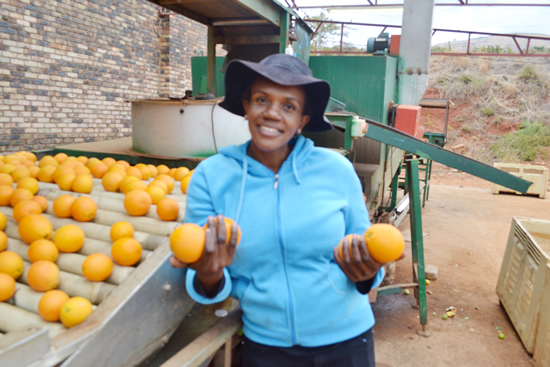 Fadana was awarded the Female Entrepreneur of the Year Award (FEA) by the Department of Agriculture Forestry and Fisheries (DAFF) at a gala event in Limpopo recently.
Fadana was awarded the Female Entrepreneur of the Year Award (FEA) by the Department of Agriculture Forestry and Fisheries (DAFF) at a gala event in Limpopo recently.
Speaking with the assistance of her daughter Qhawekazi, Fadana, who cannot speak above a whisper after losing most of her voice in a car accident in 2009, expressed delight at having won the award.
"It shows that people with disabilities are able to achieve in an unexpected industry."
She said she would put her R100 000 prize money towards an abattoir to be erected on unused land on the farm in Haga Haga, near East London.
Qhawekazi related how her mother, who is a former banker, refused to throw in the towel after the accident.
"She is truly inspiring. I am in awe of the hard work she puts in on the farm. She is a true example of why we should never give up," said Qhawekazi.
Fadana, who got her farm from government’s land reform programme in 2011, was named top producer in the smallholder category in the Amathole region and in the provincial awards.
Qhawekazi said that her mother wants to use innovative ways to grow her beef production business, including expanding her butchery in East London.
She hopes women are able to take something from her hard work.
“This industry is still male-dominated and for a woman to make it this far is an achievement,” said Qhawekazi.
Fighting women and children abuse
Fighting women and children abuse nthabiGENDER-BASED violence is a disturbing trend that needs to be rooted out of society. Government is working with different organisations to fight the scourge.
As the country observes 16 Days of Activism of no Violence against Women and Children, from 25 November to 10 December, the Department of Women will hold talks with men and women who experience abuse daily, either as victims themselves or as family members of victims.
The conversations, termed community dialogues, will take place in all provinces.
“These dialogues will provide a platform for the nation, from rural and urban areas and formal and informal settlements, to professionals and business people, civil society and young and old people to tell their personal stories,” said the department.
The dialogues will address the causes of gender-based violence in different regions of the country, as regions have their own form of gender-based violence. It will also address religious, cultural and popular community culture or lifestyles that contribute to gender-based violence in specific districts.
The first dialogue will be launched in Limpopo on
25 November, in partnership with government departments.
“This multi-sectoral approach is aimed at strengthening local, provincial and national institutional mechanisms to prevent and respond to gender-based violence.”
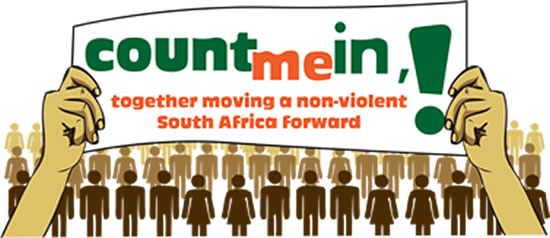 The dialogues will not be limited to gender-based issues, but will include witchcraft violence, child rape and incest, ukuthwala, child murders, elder abuse and violence against lesbians, gays, bisexuals and transgender individuals.
The dialogues will not be limited to gender-based issues, but will include witchcraft violence, child rape and incest, ukuthwala, child murders, elder abuse and violence against lesbians, gays, bisexuals and transgender individuals.
Other institutions of government will be present at the dialogues to offer litigation services, where necessary, including the Commission on Gender Equality and the Legal Resources Centre.
The dialogues will be aligned with the department’s #365 Days Campaign and #CountMeIn to end violence against women.
Did you know?
Victims of abuse can call the Department of Social Development’s Gender-based Violence Command Centre toll free on 0800 428 428 (0800 GBV GBV) and can speak to a social worker for assistance and counselling.
Callers can also request a social worker from the command centre to contact them by dialling *120*7867#, (free) from a cellphone.
SKA area enters digital broadcasting space
SKA area enters digital broadcasting space nthabiResidents in the core towns of the Square Kilometre Array (SKA) area recently became the first South Africans to enter the digital broadcasting space in the country.
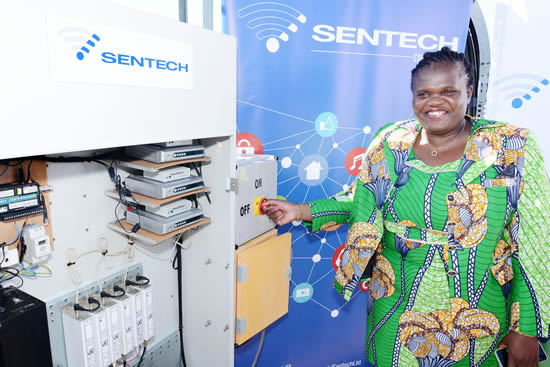 On 28 October Communications Minister Faith Muthambi turned off the analogue television transmission, and over 3 700 households in the towns of Carnarvon, Vanwyksvlei, Brandvlei, Vosburg and Williston have been successfully migrated to the much-awaited digital platform.
On 28 October Communications Minister Faith Muthambi turned off the analogue television transmission, and over 3 700 households in the towns of Carnarvon, Vanwyksvlei, Brandvlei, Vosburg and Williston have been successfully migrated to the much-awaited digital platform.
“We have moved from analogue to digital and the chapter has been closed in this area. We will be doing this in phases, in all nine provinces.
“Turning off the analogue terrestrial TV transmission meant that a digitalised era of high-definition TV has come for our people in the SKA area.”
The analogue switch off is the process in which analogue television broadcasting is converted to and replaced with digital television.
Digital broadcasting is far more efficient, allows better picture and sound quality and once analogue transmissions are switched off, a large amount of radio frequency spectrum will be released. This can then be used for new broadcasting and other communications services, such as broadband.
Minister Muthambi said she is looking to complete the process of migrating to the broadcasting digital system by December 2018.
Fast fact
The migration to the broadcasting digital system is expected to be complete by December 2018
Registrations are underway in the Free State, Mpumalanga and Limpopo provinces. Poor households who qualify for the government subsidy are urged to register for free set-top boxes at their local Post Office.
Registrations will open in the North West, Eastern Cape, KwaZulu-Natal, Western Cape and Gauteng at a later stage.
The department established the Digital Terrestrial Television (DTT) Contact Centre to assist South African audiences with DTT support, by channelling all queries to the relevant digital migration stakeholders.
The DTT Contact Centre has been instrumental in ensuring that an average of 99 percent of activations within the Northern Cape’s SKA areas.
For more information, call the Go Digital Call Centre on 0800 11 11 88.
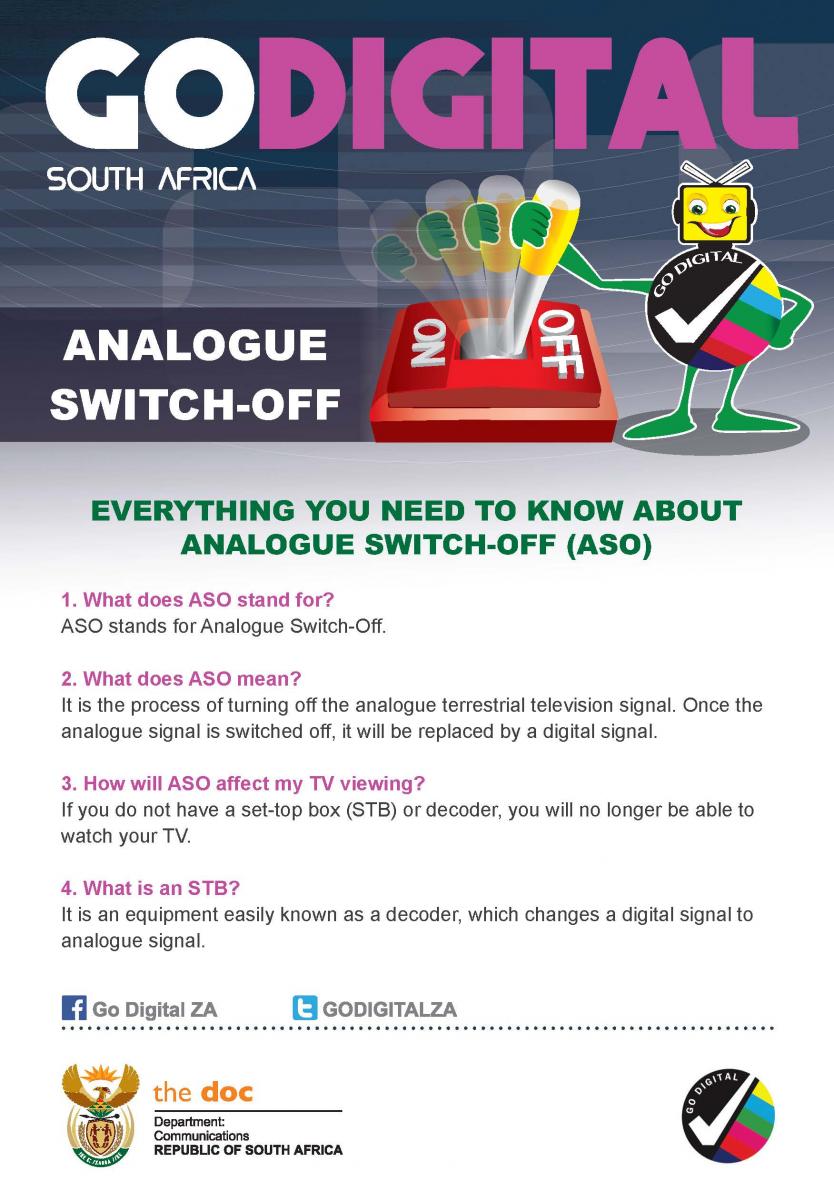
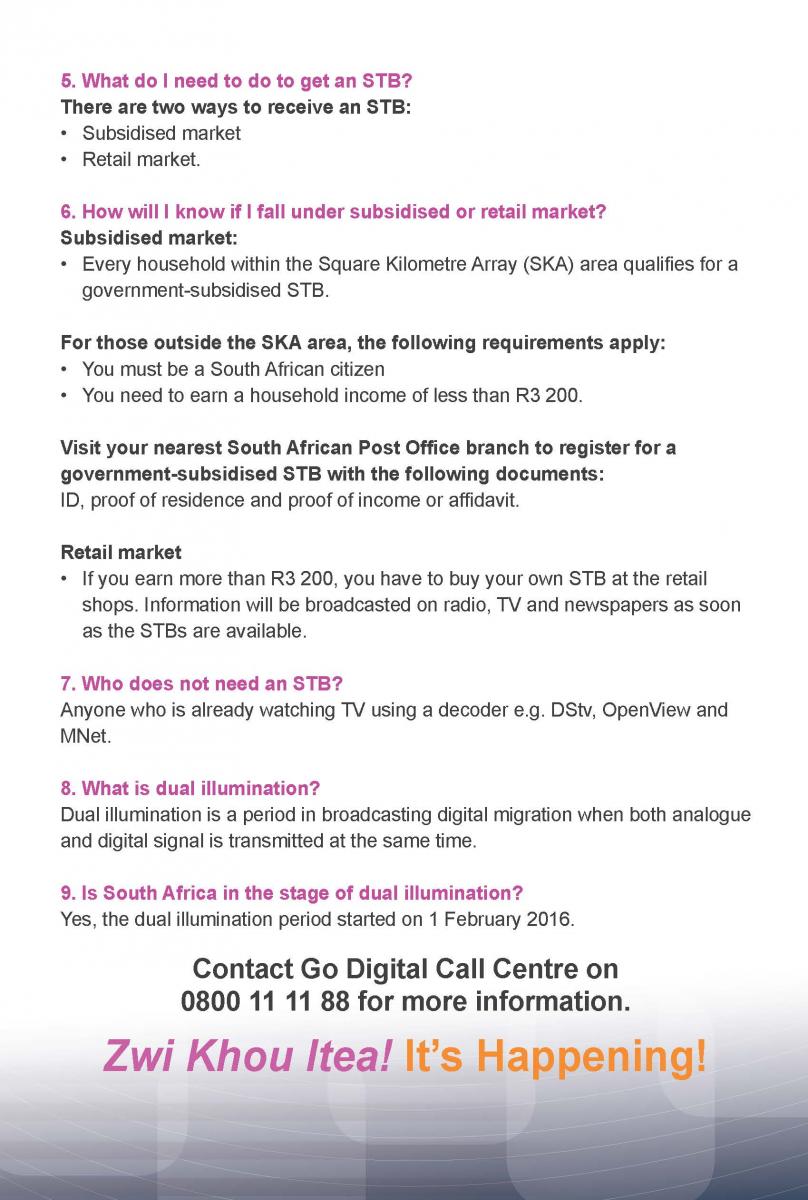
Macadamia plantation brings hope
Macadamia plantation brings hope nthabiA second major macadamia nut plantation, recently launched in the Eastern Cape, promises a major socio-economic boost for the AmaJingqi rural area near Willowvale.
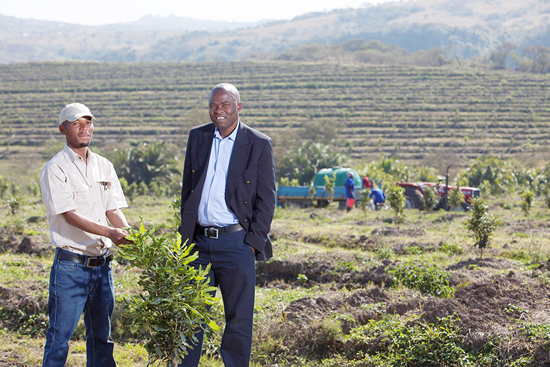 The AmaJingqi Macadamia Farming (AMF) project, which is spearheaded by Eastern Cape Macadamia (ECM), will see 300 hectares planted by April 2017. It is expected to repeat the success seen in Ncerha Macadamia Farms (NMF) near East London.
The AmaJingqi Macadamia Farming (AMF) project, which is spearheaded by Eastern Cape Macadamia (ECM), will see 300 hectares planted by April 2017. It is expected to repeat the success seen in Ncerha Macadamia Farms (NMF) near East London.
The AMF is partly funded by Indibano Projects, an organisation chaired by former national Minister of Water Affairs and Forestry Lindiwe Hendricks, which raises funds for development projects, mainly in agriculture.
The project is based on a community-private partnership model, through which government invests in
infrastructure on behalf of the communities to develop the province’s macadamia industry.
ECM is targeting 4 200 hectares for new macadamia plantations, in partnership with rural communities and emerging farmers.
AMF’s field officer Lwando Mnqweno, 35, is one of 93 AmaJingqi residents that have been employed by AMF since the start of the project in 2015.
“I was unemployed for about five years before I joined the macadamia nut project and life was tough.
In just over a year, the project has brought positive change to my life. My co-workers and I have a stable income,” says Mnqweno.
To date, 100 hectares have been planted in the AmaJingqi community. The macadamia trees are sourced from the five-star Ncera Macadamia Farming nursery that has been accredited by the Southern African Macadamia Growers Association.
AmaJingqi Traditional Council’s Chief Ngwenyathi Dumalisile said: “Not only does the community hold land usage rights and manage the 80-year land lease on behalf of the community, but 300 sustainable jobs will be created for the community, proceeds from profits will be ploughed back to the community, and the community has first right of refusal for procurement, jobs and skills transfer.”
Most of the area’s population of about 9 500 residents live in poverty, with the youth making up 65 percent, of which 54 percent are female.
Agricultural programme bears fruit
Agricultural programme bears fruit nthabiYoung people in Mpumalanga are getting a skills boost in the agricultural sector.
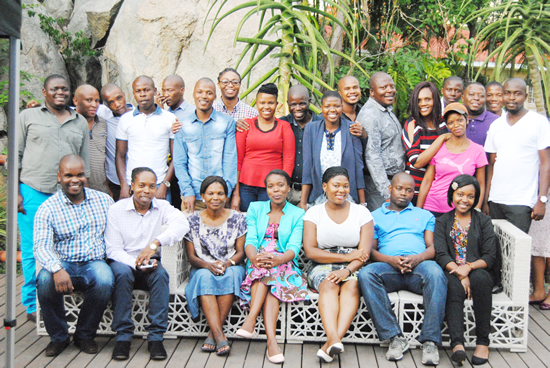 The Mpumalanga Department of Rural Development and Land Reform’s Agricultural Graduates Programme is bearing fruit.
The Mpumalanga Department of Rural Development and Land Reform’s Agricultural Graduates Programme is bearing fruit.
A year after the department called on unemployed agricultural graduates to apply, 20 recruits have already been placed.
Siphiwe Nyathi, a former journalist who also has a Diploma in Plant Production from the Mpumalanga Agricultural College, was one of the recruits. She is receiving hands-on training at the state-owned Ryton Estate Farm, a citrus production farm.
Nyathi has found a new passion.
“This is where I want to be,” she said.
The exposure has allowed Nyathi an opportunity to learn about various types of oranges (valencia, navel and midnight). The products are sold to the domestic and international market. Domestically, the products are sold to big retailers and internationally, to countries in the Far East and Middle East, as well as Russia and the United Kingdom.
Part of their produce is also sold to citrus fruit processors near Malelane, for juice-making.
Another recruit, Vincent Lugongolo, was placed at the Ehlanzeni District Office where he performs administrative functions.
The aim of the programme is to place graduates in specific projects, within the province’s three districts.
The exposure incorporates project management and administration and ensures that graduates are poised to facilitate poverty reduction, social organisation, youth development and the development of cooperatives, rural enterprises and industries.
*Zithini Dlamini works for the Department of Rural Development and Land Reform.
For more information call: 013 754 8045
Hotel owner aims for greater heights
Hotel owner aims for greater heights nthabiThe success that Nonkqubela Mayatula, owner of Miarestate Hotel and Spa, enjoys today is the result of hard work and dedication.
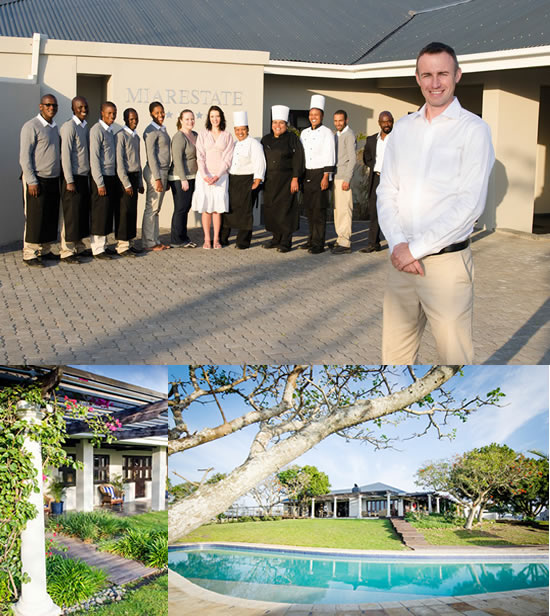 When Nonkqubela Mayatula established a five-star hotel in Haga Haga, Eastern Cape, three years ago, she was armed with solid senior management experience in the corporate sector and a passion for hospitality.
When Nonkqubela Mayatula established a five-star hotel in Haga Haga, Eastern Cape, three years ago, she was armed with solid senior management experience in the corporate sector and a passion for hospitality.
Today Miarestate Hotel and Spa has 30 employees and is on a steady growth path.
Mayatula’s Miarestate Hotel and Spa, which is located on the Wild Coast east of East London, took top honours in the 5-Star Lodge category at the Eastern Cape Lilizela Awards held recently.
“This (Lilizela) award is very good encouragement for my team. I think it shows that when opportunity meets preparedness you get lucky and you win. For my team it’s very important because it uplifts everybody and lets them know it pays off to be of service,” she said.
Mayatula told Vuk’uzenzele her journey has not been without challenges, but credited the Eastern Cape Parks and Tourism Agency (ECPTA) for being a compass and giving her support while starting her business.
“ECPTA has been my biggest supporter. It was refreshing for me to find one government agency that understands, that is supportive and is accessible,” said Mayatula.
The Miarestate Hotel and Spa offers a rare combination of game viewing along the coast and gives visitors a unique experience.
“We have game like Cape mountain zebra, nyala and giraffe and it's all along the coastline in Haga Haga. So, to combine the coast and game with fine dining and a spa is a unique selling point and I think we do it very well every day,” said Mayatula.
Mayatula said her three years in the hospitality industry has been a learning journey.
“You have to have the heart and personality for hospitality. It’s about being able to take constructive criticism and making sure staff are motivated. You also find that you have to make do with what you have to deliver what you promised to guests,” said Mayatula.
Mayatula, who holds a Bachelor of Social Science from the University of Cape Town and an MBA from George Washington University in the United States, and has held executive positions in the corporate sector.”
Learners get their own wheels
Learners get their own wheels nthabiThe days of walking 10 km to school are now a thing of the past for 16-year-old Waseem Keur of Crosby, south of Johannesburg.
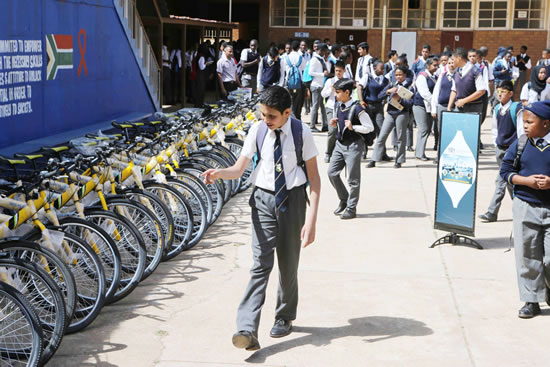 This is thanks to the Gauteng Department of Roads and Transport, which recently handed over 100 bicycles to Johannesburg secondary school learners.
This is thanks to the Gauteng Department of Roads and Transport, which recently handed over 100 bicycles to Johannesburg secondary school learners.
Keur and his friends used to wake up in the early hours of the morning to be at school on time.
The distribution of bicycles is part of the Shovakalula Bicycle Project, a national initiative of the Department of Roads and Transport, which seeks to provide ease of mobility to learners walking over 3 km between home and school.
Keur could not contain his joy as he rode his bicycle for the first time.
“I cannot believe I have my own bicycle; my parents couldn’t afford to buy one. There is no way I’m going to be late for school.”
The Shovakalula Project aims to promote cycling as a low-cost mobility solution to low-income households, targeting mainly scholars.
Johannesburg Secondary School Principal Alfred Jayson said they used to have a problem with late comers, but now this has been solved.
“Some of our kids come from as far as Soweto and they cannot afford transport fares. We are glad that the problem is a thing of the past.”
To date, the project has donated over 30 000 bicycles throughout Gauteng to learners who meet the set qualification criteria, to give them easy access to learning institutions.
Jobs: Government Communication and Information System
Jobs: Government Communication and Information System andileProvincial Director Free State
Reference: DFS 171016
Centre: Free State
Directorate: Provincial Local Liaison
Salary: All-inclusive remuneration package, R 898 743.00 per annum
Director: Rapid Response
Reference: DRR 171016
Centre: Pretoria
Directorate: Rapid Response
Salary:All-inclusive remuneration package, R 898 743.00 per annum
Chief Director: Media Engagement
Reference: CDMD 171016
Centre: Pretoria
Directorate: Media Engagement
Salary: All-inclusive remuneration package, R 1 068 564 per annum
Director: Cluster Communication: Governance and Administration (G&A) Cluster and Social Protection, Community and Human Development (SPCHD) Cluster
Reference: DCC 171016
Centre: Pretoria
Directorate: Cluster Communications
Salary: All-inclusive remuneration package, R 898 743.00 per annum
For more information on the requirements of the position, kindly visit their website on www.gcis.gov.za
Closing date: 18 November 2016
GCIS is an equal opportunity employer. Applicants with disabilities are welcome to apply. Applications must be submitted on form Z83, obtainable from any Public Service Department or on the internet at www.gov.za/documents. The completed and signed form Z83 should be accompanied by a recently updated, comprehensive CV as well as certified copies of all qualification(s) and ID-document. The certification must be within three (3) months. Should you be in possession of a foreign qualification, it must be accompanied by an evaluation certificate from the South African Qualification Authority (SAQA). Applicants who do not comply with the above-mentioned requirements, as well as applications received late, will not be considered. Failure to submit all the requested documents will result in the application not being considered. Correspondence will be limited to short-listed candidates only. If you have not been contacted within three (3) months after the closing date of this advertisement, please accept that your application was unsuccessful. Suitable candidates will be subjected to a personnel suitability check (criminal record, citizenship, credit record checks, qualification verification and employment verification). The GCIS is committed to providing equal opportunities and practicing affirmative action employment. It is our intention to promote representivity (race, gender, disability) in the department through filling these posts. The candidature of persons whose appointment/transfer/promotion will promote representivity will receive preference.
Applications can be addressed to the Director-General: Government Communication and Information System, Private Bag X745, Pretoria, 0001, for attention Mr S Matshageng.
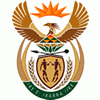
Jobs: Department of Water and Sanitation
Jobs: Department of Water and Sanitation andileSpecialist Engineer Grade A (Mechanical Electrical)
Reference: 181116/01
Salary: R1 283 553 per annum (all-inclusive OSD salary package- offer based on proven years of experience)
Centre: Midmar dam, Howick
Requirement: Master’s degree in Engineering or relevant qualification. Compulsory registration with Engineering Council of South Africa (ECSA) as a Professional Engineer. Ten (10) years post qualification experience required as a registered professional Engineer. A valid Code EB (Code 8) driver’s license.
Enquiries: Mr AM Sayed, Tel 033 239 1900
Chief Director: Transformation Policy and Coordination
Reference: 181116/02
Salary: R1 068 564 per annum, all-inclusive package, (Level 14)
Centre: Pretoria
Requirements: A three year B. Degree in Social Science or Humanities (NQF 7). A post graduate degree or diploma will serve as an added advantage. Five (5) years experience in Senior Management.
Enquiries: Ms P Ramunenyiwa, Tel 012 336 8065
Chief Director: Strategic Asset Management
Reference: 181116/03
Salary: R1 068 564 per annum, all-inclusive package, (Level 14)
Centre : Pretoria
Requirements: 4 years Bachelor degree in Engineering (NQF 7). 5 to 10 years senior management experience, and 6 years’ experience in engineering services environment.
Enquiries: Mrs Zandile Mathe, Tel 012 336 7305
Chief Director: Corporate Planning and Strategy Office of the DG
Reference: 181116/04
Salary: R1 068 564 per annum, all-inclusive package, (Level 14)
Centre: Pretoria
Requirements: A three year B. Degree in Social Science or Humanities (NQF 7). An MBA will serve as an added advantage. Five (5) years experience in Senior Management.
Enquiries: Ms P Ramunenyiwa, Tel 012 336 8065
Certificated Engineer X 4 posts
Reference: 181116/76
Salary: R 1 068 564 all-inclusive salary package (Level 14)
Centre: NWRI Central Operations. Ref: 181116/76 A
Centre NWRI Southern Operations. Ref: 181116/76 B
Centre Pretoria Ref: 181116/76 C X 2 Posts
Requirements: Government Certificate of Competency for Engineers and a Degree in Engineering, B-Tech Engineering or Higher National Diploma in Mechanical or Electrical fields. Three (3) to five (5) years experience in Government Machine Regulation application.
Enquiries: Mr L Manus Tel 012 336 6583
Director: Planning and Information
Reference: 181116/05
Salary: R898 743 per annum (all-inclusive package )
Centre: Free State Provincial Office (Bloemfontein)
Requirements: B - Degree or NQF 7 qualification in Water Resources Environment Engineering. Five (5) to ten (10) years experience in WRM, Environment, Policy and Strategy Development, and Project of which five (5) years should be at Middle / Senior Managerial level.
Enquiries: Dr T Ntili Tel 051 405 9000
Chief Engineer (Construction Project Manager)
Reference: 181116/06
Salary: R 1 042 500 per annum (all-inclusive package)
Centre: Umzimvubu
Requirements Engineering qualification (B. Eng or B.Sc. Eng) or equivalent qualification (as a minimum qualification). Ten (10) years appropriate experience.
Enquiries: Mr V Monene, Tel 012 336 7842
Chief Engineer Grade A (Civil)
Reference: 181116/07
Centre: Midmar dam, Howick
Salary: R871 548 OSD (all-inclusive OSD salary package- offer based on proven years of experience)
Requirements An Engineering degree (B. Eng / B.Sc. Eng) or relevant qualification.
Compulsory registration with the Engineering Council of South Africa (ECSA) as a Professional Engineer. A minimum of six (6) years post registration experience. A valid driver’s licence (certified copy must be attached).
Enquiries: Mr AM Sayed, Tel 033 239 1900
Chief Engineer (Grade A): Dam Safety Regulation
Reference: 181116/08
Salary: R871 548 per annum (all-inclusive OSD salary package- offer based on proven years of experience)
Centre: Pretoria
Requirements: Civil Engineering degree (B Eng/BSc Eng) or relevant qualification. Compulsory registration with the Engineering Council of South Africa (ECSA) as a Professional Engineer and six (6) years experience required as a registered Pr Eng. Valid driver’s license.
Enquiries: Mr CL van den Berg, Tel 012 336 7509
Chief Engineer Grade A - Sub Directorate: Water Resources Planning
Reference: 181116/09
Centre: Tzaneen
Salary: R 871 548 per annum (all-inclusive salary package)
Requirements : Engineering Degree (B Eng /BSC (Eng). Six years post qualification experience required as a registered Professional Engineer. A valid Driver’s license (attach a copy).
Enquiries: Mrs AD Maumela Tel 015 290 1358
Chief Engineer Grade A
Reference: 181116/10
Salary: R 871 548.00 per annum (all-inclusive OSD salary package, offer based on proven years of experience)
Centre: King Williams Town
Requirements: Engineering degree (B Eng/BSC (Eng) or relevant qualification. Six (6) years post qualification experience as a registered professional engineer.
Enquiries: Ms L Radebe, Tel 043 604 5560
Chief Engineer (Civil) Grade A
Reference: 181116/75
Salary: R 871 548 per annum (all-inclusive OSD salary package)
Centre: NWRI: Central Operations, Tugela Vaal
Requirements :Engineering degree (B Eng/BSC (Eng) or relevant qualification.Six (6) years post qualification experience as a registered professional engineer.
Enquiries: Ms N Ndumo, Tel 012 741 7302
Scientist Manager Grade A
Reference: 181116/11
Salary: R 750 984 per annum (all-inclusive salary package)
Centre: East London
Requirements: MSc Degree or relevant qualification. Six (6) years post qualification natural scientific experience.
Enquiries: Ms B Kama, Tel: 043 701 0376
Scientist Manager Grade A: Geohydrological Monitoring & Assessment
Reference: 181116/12
Salary: R 750 984 per annum (all-inclusive OSD salary package)
Centre: Pretoria
Requirements: MSc Degree or relevant qualification. Six (6) years post qualification natural scientific experience.
Enquiries: Mr L Z Maswuma Tel: 012 336 8784
Scientist Manager Grade A: Hydrological Information
Reference: 181116/13
Salary: R 750 984 per annum (all-inclusive OSD salary package)
Centre: Pretoria
Requirements: MSc Degree or relevant qualification. Six (6) years post qualification natural scientific experience.
Enquiries: Mr LZ Maswuma Tel: 012 336 8784
Scientific Manager Grade A: Sub Directorate: Proto CMA Limpopo
Reference: 181116/14
Salary: R750 984 per annum (all-inclusive OSD salary package, offer based on proven years of experience)
Centre: Polokwane
Requirements: MSc Degree or relevant qualification. Six (6) years post qualification natural scientific experience.
Enquiries: Mrs Maumela AD, Tel 015 290 1358
Deputy Director: Coordination: NWRI: Strategic Support
Reference: 181116/15
Salary: R 726 276 per annum (all-inclusive package) level 12
Centre: Pretoria
Requirements: Degree or National Diploma in Public Management/Administration. Three (3) to five (5) years relevant management experience in Administration.
Enquiries: Ms Z Mathe, Tel 012 336 7305
Deputy Director: Socio Economic Development
Reference: 181116/16 NWRI: Strategic Support
Salary: R 726 276 per annum (All-inclusive package) level 12
Centre: Pretoria
Requirements: Degree or National Diploma on Social Sciences/Natural Sciences. Three (3) to five (5) years Management experience in Multi-lateral relations services.
Enquiries: Ms P Magubane, Tel 012 336 8519
Deputy Director: Institutional Governance (3 posts)
Reference: 181116/17
Salary: R 726 276 per annum (all-inclusive package) Level 12
Centre: Pretoria
Requirements: Bachelor’s Degree or National Diploma in Administration/Public Management or Social Science. Five (5) years experience in regulatory environment of which three (3) years should be at management level.
Enquiries: Ms V Pillay, Tel 012 336 8107
Deputy Director: Compliance Monitoring Agriculture Processing
Reference: 181116/18
Salary: R 726 276 per annum (all-inclusive package) Level 12
Centre: Pretoria
Requirements: B–Degree or N-Diploma in Environmental Management or Natural Sciences. A qualification or experience in intensive agriculture production system will be added advantage.
Enquiries: Mr S Mkaliphi, Tel 012 336 8048
Senior Policy Specialist
Reference: 181116/19
Salary: R 612 822 per annum (all-inclusive package) level 11
Centre: Pretoria
Requirements: Honours Degree in Policy, LLB, Economics or related field. Master’s Degree will be an added advantage. Three (3) to five (5) year’ experience in policy development, coordination and review.
Enquiries: Mr H Fundzo, Tel 012 336 6515
Deputy Director: Stakeholder Liaison & Parlamentary Coordination
Reference: 181116/20
Salary: R 612 822 per annum (all-inclusive package) level 11
Centre: Pretoria
Requirements: National Diploma/ Degree in Social Science. Three (3) to five (5) years management experience in Administration. Sound knowledge of Government policies.
Enquiries: Ms P Skhonde, Tel 012 336 7306
Deputy Director: Allocation Equity
Reference: 181116/21
Salary: R 612 822 per annum (all-inclusive package) level 11
Centre: Pretoria
Requirements: Degree /National Diploma in Sciences. Three (3) to five (5) years relevant Experience in Integrated Water Resource Management.
Enquiries: Mr MS Skosana, Tel 012 336 7677
Deputy Director: Logistics
Reference: 181116/22
Salary: R 612 822 per annum (all-inclusive package) level 11
Centre: Pretoria
Requirements : A national diploma or degree in Public Management/Finance/Supply Chain Management. Six (6) to ten (10) years experience in Supply Chain Management four of which must be at supervisory level.
Enquiries: Mr J Hlakudi, Tel 012 336 6681
Deputy Director: Administration: NWRI Sub Directorate Project Support
Reference: 181116/23
Salary: R 612 822 per annum (all-inclusive package) level 11
Centre: Pretoria
Requirements: Degree or National Diploma in Administration. Three (3) to five (5) years management experience in Administration.
Enquiries: Ms P Magubane, Tel 012 336 8519
Deputy Director: Employee Relations
Reference: 181116/24
Salary: R 612 822 per annum (all-inclusive package) level 11
Centre: King Williams Town
Requirements: Three year (3) Degree or National Diploma in Labour Relations Management.
Enquiries: Ms T Solwandle, Tel 043 604 5476
Deputy Director: Knowledge Archiving and Communication
Reference: 181116/25
Knowledge Management
Centre: Pretoria
Salary: R 612 822 per annum (all-inclusive package) level 11
Requirements: Degree or National Diploma in Library/Information Management/Knowledge Management/Business Management. Three (3) to five (5) years relevant experience in Knowledge Management/Business Management/Library Information Management.
Enquiries: Ms D Segoale, Tel 012 336 7703
Deputy Director: Public Participation
Reference: 181116/26
Salary: R 612 822 per annum (all-inclusive package) level 11
Centre: Pretoria
Requirements: Bachelor’s Degree in Social Sciences or equivalent tertiary qualification. Five (5) or more years at management level and good understanding of Public Service Regulations.
Enquiries: Mr M Mahasha, Tel 012 336 6717
Deputy Director: Expenditure Control and Monitoring
Reference: 181116/27
Salary: R 612 822 per annum (all-inclusive package ) level 11
Centre: Pretoria
Requirements: National Diploma or Degree or B Com in Financial Administration. Three to five years’ experience in Public Financial Administration. Five (5) or more years at management level and good understanding of Public Service Regulations.
Enquiries: Mr Thabiso Toka, Tel 012 336 8378
Deputy Director: Knowledge, Content and Information Management
Reference: 181116/28
Salary: R 612 822 per annum (all-inclusive package ) level 11
Centre: Pretoria
Requirements: Degree or Diploma in Knowledge Management/Business Management/Library Science and Information Science. Three (3) to five (5) years relevant experience in Knowledge Management/ Business Management/Library Science and Information Science.
Enquiries: Ms D Segoale, Tel 012 336 7703
Deputy Director: Information Technician (RISS) - Directorate: Eastern Operations
Reference: 181116/29
Salary: R 612 822 per annum (all-inclusive package) level 11
Centre: Midmar dam, Howick
Requirements: National Diploma or degree in Degree in IT or related qualification. Six (6) to Ten (10) years’ experience in IT related functions.
Enquiries: Mr A Sayed, Tel 033 239 1900
Deputy Director: Regional Information System Support (IT Manager)
Reference: 181116/30
Salary: R 612 822 per annum (all-inclusive package) level 11
Centre: Durban
Requirements: A Degree or National Diploma IT. Six (6) to ten (10) years experience in IT related functions.
Enquiries: Ms M Cele, Tel: 031 33 62700
Engineer Production Grade A-C (Civil) - Directorate: Eastern Operations
Reference: 181116/31
Salary: R594 477 – R911 355 (all-inclusive OSD salary package- offer based on proven years of experience)
Centre: Midmar Dam, Howick
Requirements An Engineering degree (B. Eng / B.Sc. Eng) or relevant qualification. 3 years post qualification engineering experience.
Enquiries: Mr AM Sayed, Tel 033 239 1900
Engineer Production Grade A-C (Mechanical/Electrical)
Reference: 181116/33
Salary: R594 477 – R911 355 (all-inclusive OSD salary package- offer based on proven years of experience)
Centre: Directorate: Eastern Operations, Midmar dam, Howick
Requirements An Engineering degree (B. Eng / B.Sc. Eng) or relevant qualification. 3 years post qualification engineering experience.
Enquiries: Mr DF Brune, Tel 033 239 1900
Scientist (Production) Grade A-C
Reference: 181116/34 Directorate: Resource Protection and Waste
Salary: R512 244 – R 785 292 per annum (all-inclusive OSD salary packages- offer based on proven years of experience)
Centre: Pretoria
Requirements: Science Degree (BSc) (Hons) or relevant qualification Three (3) years post qualification Natural Scientific experience.
Enquiries: Mr KW Mosefowa, Tel 012 336 7541
Scientist Production Grade A-C
Reference: 181116/35
Salary: R512 244 – R 785 292 per annum (all-inclusive OSD salary packages - offer based on proven years of experience)
Centre: Umthatha
Requirements : Science Degree (BSc) (Hons) or relevant qualification Three (3) years post qualification Natural Scientific experience.
Enquiries: Ms Z Sishuba, Tel 043 701 0376
Scientist (Production) Grade A - C: Groundwater Assessment and Monitoring
Reference: 181116/36
Salary: R512 244 – R 785 292 per annum (all-inclusive OSD salary packages - offer based on proven years of experience)
Centre: Pretoria
Requirements: Science Degree (BSc) (Hons) or relevant qualification Three (3) years post qualification Natural Scientific experience.
Enquiries: Mr LZ Maswuma, Tel 012 336 8784
Scientist Production Grade A - Drinking Water Quality and Waste Management
Reference: 181116/37
Salary: R512 244 – R 785 292 per annum (all-inclusive OSD salary packages - offer based on proven years of experience)
Centre: Western Cape Regional Office
Requirements: Science Degree (BSc) (Hons) or relevant qualification Three (3) years post qualification Natural Scientific experience.
Enquiries: Ms M Enele, Tel 021 941 6076
Control Environmental Officer: Grade A
Reference: 181116/38
Centre: Upper Vaal Business Unit
Salary: R409 989 per annum (offer based on proven years of experience) (OSD)
Requirements: A 4 (four) year degree or equivalent qualification in Natural/Environmental Sciences and six (6) years post-qualification experience. A valid driver’s licence (Code EB) and computer literacy. Excellent communication, negotiation and facilitation skills as well as the ability to work in a multi-disciplinary team. Extensive experience in Integrated Water Resource Management.
Enquiries: Mr ME Matseba, Tel 012 392 1374
Control Environmental Officer Grade A: Sub Division Water Quality Management
Reference: 181116/39
Salary: R409 989 per annum (all-inclusive OSD salary package)
Centre: Tzaneen
Requirements: A 4 (four) year degree or equivalent qualification in Natural/Environmental Sciences and six (6) years post-qualification experience. Knowledge and experience in project and programme management.
Enquiries: Mrs Maumela AD, Tel 015 290 1358
Control Environmental Officer (Grade A) X 3
Reference: 181116/40
Salary: R 409 989 per annum (all-inclusive OSD salary package)
Centre: East London; Umthatha; Port Elizabeth
Requirements: A 4 (four) year degree or equivalent qualification in Natural/Environmental Sciences and six (6) years post-qualification experience. A valid driver’s licence. (Certified copy must be attached).
Enquiries: Ms B Kama Tel: 043 701 0376
Office Manager
Reference: 181116/41
Salary: R 311 784 per annum level (9)
Centre: Bloemfontein
Requirements: A degree/National Diploma in Office Management and Technology, Public Management or Business Administration. A good understanding of Public Service processes. Three (3) to five (5) years’ experience in secretarial duties and general administration.
Enquiries: MZ Letloenyane, Tel: 051 405 9240
Assistant Director: Strategy Coordination - Directorate Strategy
Reference: 181116/42
Salary: R 311 784 per annum level (9)
Centre: Pretoria
Requirements: BSc Degree or National Diploma in Social or Natural or Environment Science or relevant qualification. Three (3) to Five (5) years experience in the water and sanitation sector.
Enquiries Ms M Ligthelm, Tel: 012 336 7067
Assistant Director: Regulations
Reference: 181116/43
SalaryR389 145 per annum (level 10)
Centre: Durban
Requirements: An appropriate B Degree or equivalent in the fields of development, engineering, natural or economic sciences and/ or management coupled with a maximum of 3 years’ experience in service related functions, preferably water resources or water services regulation.
Enquiries: Ms A Masefield, Tel: 031 336 2700
Assistant Director: Supply Chain Management (Demand Management)
Reference: 181116/44
Salary: R311 784 per annum (Level 09)
Centre: Pretoria
Requirements: National Diploma/Degree in Finance / Supply Chain Management. Minimum of Three (3) years experience in supply chain management at level 8.
Enquiries: Mr G Makoloi, Tel: 012 336 7461
Assistant Director: Supply Chain Management
Reference: 181116/45
Salary: R 311 784 per annum (Level 09)
Centre King Williams Town
Requirements: National Diploma/Degree in Finance / Supply Chain Management. Three (3) to five (5) years’ experience in Supply Chain Acquisition and Demand Management. Knowledge of policy development and implementation.
Enquiries: Mr CR Samuels Tel: 043 604 5405
Assistant Director: Monitoring; Evaluation and Strategic Support
Reference: 181116/46
Salary: R 311 784 per annum (Level 09)
Centre: King William’s Town
Requirements: A recognised three year degree/diploma from a recognised tertiary institution; preferably in Social Science; Civil Engineering or Public Administration with at least three (3) five (5) years appropriate experience in analytical assessments and report writing.
Enquiries: Ms Makhanya, Tel: 043 604 5401/6
Assistant Director: DORA Co-ordination
Reference: 181116/47
Salary: R 311 784 per annum (Level 09)
Centre: Pretoria
Requirements: Bachelor’s Degree or National diploma in Financial Management. Three (3)-five (5) years’ experience in financial administration. Knowledge of accounting.
Enquiries: Mr T Toka, Tel: 012 336 8378
Assistant Director: Knowledge Hub
Reference: 181116/48
Salary: R 311 784 per annum (Level 09)
Centre: Pretoria
Requirements: Degree or Diploma in Library/Information Management/ Knowledge Management/ Business Management. Three (3) to five (5) years relevant experience in Knowledge Management/ Business Management/ Library Information Management. Information systems.
Enquiries: Ms D Segoale, Tel: 012 336 7703
Assistant Director: Public Participation
Reference: 181116/49
Salary: R 389 145 per annum (Level 10)
Centre: Pretoria
Requirements: A Bachelor’s Degree in Social Sciences or equivalent tertiary qualification. Four (4) years or more work experience at junior management level coupled with relevant working experience in the water or community development sector. Good understanding of Public Service Regulations.
Enquiries Mr M Mahasha, Tel: 012 336 6717
Assistant Director: Institutional Governance
Reference: 181116/50
Salary: R389 145 per annum (level 10)
Centre: Pretoria
Requirements: B-Degree or National Diploma in Sciences or administration or management, Two (2) – four (4) years relevant experience in Governance.
Enquiries: Ms V Pillay, Tel: 012 336 8107
Assistant Director: Reconciliation
Reference: 181116/51
Salary: R311 784.00 per annum (level 9)
Centre: Pretoria
Requirements: Degree in Financial Administration. Three (3) to five (5) years experience in financial administration. Knowledge and understanding on Human Resource Management Legislation, policies, practices and procedures.
Enquiries: Mr G Masango, Tel 012 336 8930
Assistant Director: Internal Control
Reference: 181116/52
Salary: R 311 784 per annum (Level 9)
Centre: Bellville
Requirements: National Diploma or degree in Financial Management or Auditing or relevant qualification. Three (3) to five (5) years’ experience in financial administration/Supply Chain Management.
Enquiries: G Leak, Tel: 021 941 6007
Assistant Director: Asset Management
Reference: 181116/53
Salary: R311 784 per annum (level 09)
Centre: Bloemfontein
Requirements: Degree or National Diploma in Finance or Supply Chain field. Three (3) to five (5) years experience in Supply Chain Management or Finance related field at supervisory level.
Enquiries: Ms MB Keele, Tel: 051 405 9267
Assistant Director: Administration
Reference: 181116/54
Salary: R 311 784 per annum (level 9)
Centre: Pretoria
Requirements: Degree or National Diploma in Social Sciences or relevant qualifications. Three (3) to five (5) years experience in administration. Good communication skills (Verbal and Written).
Enquiries: Ms P Skhonde, Tel: 012 336 7306
Assistant Director: Administration
Reference: 181116/55 Division Administration
Salary: R 311 784 per annum (level 9)
Centre: Tzaneen
Requirements: Degree or National Diploma in Social Sciences or relevant qualifications. Three (3) to five (5) years experience in administration. supervisory experience.
Enquiries: Mr G Masia, Tel: 015 290 1348
Assistant Director: Monitoring and Evaluation
Reference: 181116/56
Salary: R 311 784 per annum (level 9)
Centre: Provincial Office Gauteng
Requirements Degree or National Diploma in Public Administration or Social Sciences. Three (3) to five (5) years experiences in Performance Monitoring and Performance Information in a supervisory level.
Enquiries: Ms M Goitsemodimo, Tel: 012 392 1324
Control Scientific Technician Grade A - Division: Catchment Planning
Reference: 181116/57
Centre Polokwane
Salary: R369 408 per annum (all-inclusive package )
Requirements: Diploma in Science or relevant qualification. Six (6) years post qualification technical (scientific) experience.
Enquiries: Mrs AD Maumela, Tel: 015 290 1358
Control Engineering Technician Grade A
Reference: 181116/58
Salary: R 369 408 per annum (all-inclusive OSD salary package)
Centre: Bloemfontein
Requirements: National Diploma in Engineering or relevant qualification. Six (6) years post qualification technical (Engineering) experience.
Enquiries: Mr AG Visser, Tel 051 405 9254, Cell: 082 808 5583
Control Engineering Technician Grade A (Civil) - Hydrometry
Reference: 181116/59
Salary: R 369 408 per annum (all-inclusive OSD salary package)
Centre: Pretoria
Requirements: National Diploma in Engineering or relevant qualification. Six (6) years post qualification technical (Engineering) experience.
Enquiries: LZ Maswuma, Tel: 012 336 8784
Environmental Officer: Specialised Production
Reference: 181116/60
Centre: Upper Vaal
Salary: R332 853 per annum (offer based on proven years of experience) (OSD)
Requirements: A relevant Honours Degree in Environmental or related field.. Four years experience in the field of water quality management will serve as an added advantage. Valid driver’s license (Code EB) and computer literacy.
Enquiries: Mr ME Matseba, Tel: 012 392 1374
Environmental Officer: Specialised Production
Reference: 181116/61
Centre: Pretoria
Salary: R332 853 per annum (offer based on proven years of experience) (OSD)
Requirements: A relevant Honours Degree in Environmental or related field.. Knowledge of Water use investigation and inspections, sampling procedures and report writing .Knowledge of relevant legislations. Knowledge and understanding of natural resource management. Knowledge in environmental acts and guidelines.
Enquiries: Ms RN Mazwi, Tel: 012 336 7554
Environmental Officer: Specialized Production - Water Quality Related Water Use
Reference: 181116/62
Salary: R 332 853 per annum
Centre: East London
Requirements: A relevant Honours Degree in Environmental or related field. A sound Knowledge of the National Water Act and related policies; strategies and guidelines are required as well as knowledge of other relevant Environmental legislation.
Enquiries: Ms B Kama, Tel: 043 701 0376
Environmental Officer Specialised Production - Sub Directorate: Proto CMA
Reference: 181116/63
Salary: R 332 853
Centre: Polokwane
Requirements A relevant Honours degree in Environmental or related field. Three (3) to five (5) years’ relevant experience. Knowledge and experience in project and programme management.
Enquiries: Mrs Maumela AD, Tel 015 290 1358
Environmental Officer: Specialised Production - Water Quality Related Water Use
Reference: 181116/64
Salary: R 332 853 per annum
Centre: East London
Requirements: A relevant Honours Degree in Environmental or related field. Three (3) years experience.
Enquiries: Ms B Kama, Tel 043 701 0376
Chief Artisan Grade A (Civil) - Directorate: Eastern Operations
Reference: 181116/65
Salary R 319 971per annum OSD (offer based on proven years of experience)
Centre: Midmar dam, Howick
Requirements: Appropriate Trade Test Certificate. Ten (10) years post qualification. Experience required as an Artisan/Artisan Foreman. Valid driver’s license.
Enquiries: Mr N Punchum, Tel 033 239 1900
Chief Artisan Grade A (Electrical) - NWRI Central Operations
Reference: 181116/66:
Salary: R319 971 per annum
Centre: Standerton Area Office
Requirements: Appropriate Trade Test Certificate. Ten (10) years post qualification experience required as an Artisan or Artisan Foreman. A valid driver’s license.
Enquiries: Mr JP Manyaka, Tel 017 712 9400
Scientific Technician: Geo-Hydrology
Reference: 181116/67
Salary: R 255 768 per annum
Centre: Cradock
Requirements: National Diploma in Science or relevant qualification. Compulsory registration with SACNASP as a certificated natural scientist .Three years post qualification technical scientific experience. Valid Code 08 driver’s license and willingness to travel and work away from home.
Enquiries: Mr A Lucas, Tel 043 701 0376
Engineering Technician Production Grade A–C (Mechanical/Electrical) - Directorate: Eastern Operation
Reference: 181116/68
Centre: Midmar
Salary: R255 768 – R392 070 per annum OSD (offer based on proven years of experience)
Requirements: National Diploma in Engineering or relevant qualification. Three (3) year post qualification technical or engineering experience. Compulsory registration with ECSA as Engineering. A valid Code EB (Code8) driver’s license.
Enquiries: Mr DF Brune, Tel 033 239 1900
The following posts are advertised for the Department of Water and Sanitation. Interested applicants are encouraged to view full details of the advertisement at www.dws.gov.za
Closing date: 18 November 2016 Time: 16h00
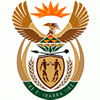
Agenda 2063 takes centre stage
Agenda 2063 takes centre stage Estelle GreeffInternational relations
African media houses have been urged to popularise the African Union Agenda 2063 and hold leaders accountable for its successful implementation.
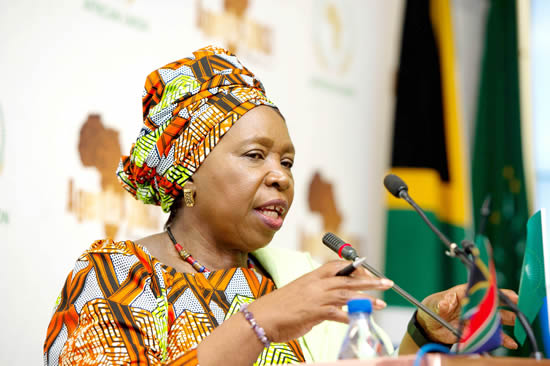 African Union (AU) Commission chairperson Dr Nkosazana Dlamini Zuma challenged media practitioners to ask themselves how they are implementing Agenda 2063 within their own space.
African Union (AU) Commission chairperson Dr Nkosazana Dlamini Zuma challenged media practitioners to ask themselves how they are implementing Agenda 2063 within their own space.
“It is very important for the media to communicate the agenda, to live it and hold the AU member states and governments accountable.
“It is all our agenda. We believe that the media and mass communications are critical to the success of Agenda 2063, especially in educating, informing and changing mind-sets so that we instil in Africans a belief in their ability to change their destiny,” said Dr Dlamini Zuma.
As such, it is important that the media should be credible, responsible and responsive, Dr Dlamini Zuma said.
She was speaking at the start of the two-day joint sitting of the African Editors' Forum and Press Officers, in Pretoria, held under the theme, ‘Deepening Africa's narrative and capacities to deliver Agenda 2063’.
The implementation of Agenda 2063 has started, Dlamini Zuma said, adding that the vision they are pursuing for Africa must be driven by its citizens.
Agenda 2063 is a strategic framework for the socio-economic transformation of the continent over the next 47 years. It builds on and seeks to accelerate the implementation of past and existing continental initiatives for growth and sustainable development.
The ideal continent that the agenda seeks in 2063 is a prosperous Africa, based on inclusive growth and sustainable development; an integrated continent, politically united and based on the ideals of Pan-Africanism and the vision of Africa’s Renaissance; an Africa of good governance, democracy, respect for human rights, justice and the rule of law; a peaceful and secure Africa with a strong
cultural identity, common heritage, values and ethics as well as an Africa that is a global player and partner where development is people-driven, unleashing the potential of its women and youth.
The issue of media ownership and freedom of expression of the media was also highlighted by Dr Dlamini Zuma, who called for telling the African story as opposed to relying on international media with a set agenda. She also touched on the protection of journalists in African countries.
“Journalists should not be punished for telling the truth and our policies and laws must create frameworks for these rights and responsibilities,” she said, noting that a lot more needs to be done.
The African Editors Forum (TAEF) President, Jovial Rantao, said they were keen to understand the agenda and help to popularise it.
“We want to emerge with improved knowledge of Agenda 2063 and a better understanding of the flagship projects. We want to leave Pretoria with strategies for improved participation and contribution to implementing the Pan-African agenda,” said Rantao.
Cashless smart card system for commuters
Cashless smart card system for commuters Estelle GreeffGauteng commuters who use taxis daily will soon be able to pay for their rides using a smart card.
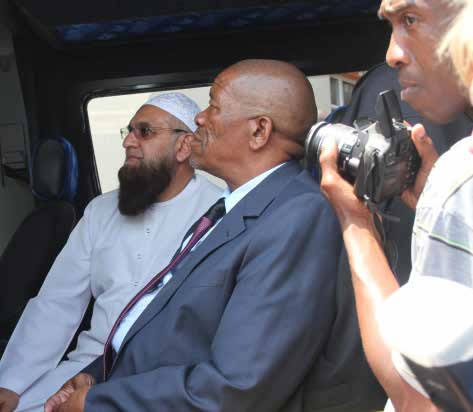 The recently launched FairPay card, which is similar to a bank card, will allow commuters to load money onto their cards and use it to pay. Commuters will be able to load money onto their cards at devices at kiosks, at taxi ranks and retail stores in the future.
The recently launched FairPay card, which is similar to a bank card, will allow commuters to load money onto their cards and use it to pay. Commuters will be able to load money onto their cards at devices at kiosks, at taxi ranks and retail stores in the future.
Launched at the Bosman Taxi Rank in Tshwane recently, the e-system is expected to be piloted in taxis operating between Johannesburg, Pretoria and Mabopane in February next year.
Speaking at the launch of the e-system, Gauteng Transport MEC Ismael Vadi said it will be expanded to other taxi routes with the aim of completing a national rollout within five years.
“Although it can be expected, in the beginning, that the system will be an inconvenience to some drivers who are used to using the traditional payment method, we cannot object to technological innovation, especially if it stands to improve the quality of our lives and makes the movement of our people a lot easier.”
The system is owned and operated by FairPay. Taxi Choice − the commercial arm of the South African National Taxi Council − is the sole shareholder, and Curve Group Holdings is the primary technology partners.
Taxi Choice Chairman Jonathan Msibi said the move from cash payments to a card-based system will allow for better control of cash in the taxi industry.
“We found that it is safer and more secure because commuters will no longer have to carry cash or worry whether the taxi driver has enough change,” said Msibi.
Apart from being able to process card payments, the equipment installed in taxis will also contain a GPS device and will work as a Wi-Fi hotspot, connecting consumers as they travel.
Know your Minister
Know your Minister Estelle Greeff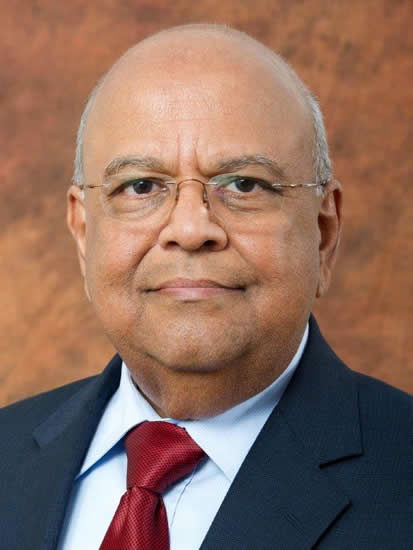 Minister Pravin Gordhan is the Minister of Finance of the Republic of South Africa, a position which he has held since December 2015.
Minister Pravin Gordhan is the Minister of Finance of the Republic of South Africa, a position which he has held since December 2015.
About the Minister
Minister Pravin Gordhan was born in Durban and matriculated from Sastri College in 1967.
Minister Gordhan holds a Bachelor of Pharmacy from the University of Durban Westville, a Doctorate of Commerce honoris causa from University of South Africa, Doctorate of Law honoris causa from the University of Cape Town and a DTech: Business Administration from the Free State Central University of Technology.
He played a significant role in drafting the White Paper on Local Government which laid the foundation for developing local government authorities.
From March 1998 he served as Deputy Commissioner for the South African Revenue Service (SARS) and was appointed as Commissioner in November 1999.
He was appointed as the Minister of Finance in May 2009 to May 2014 and in the same year he was appointed as the Minister of Cooperative Governance and Traditional Affairs. On 14 December 2015, he was re-appointed as Minister of Finance.
About the department
The Ministry of Finance is at the heart of South Africa’s economic and fiscal policy development.
Funding open for all artists
Funding open for all artists Estelle GreeffSport, arts and culture
The National Arts Council (NAC) is calling all artists and registered arts organisations in the disciplines of theatre, dance, music, visual arts, craft, literature, multi-discipline and arts education to submit their applications for project funding.
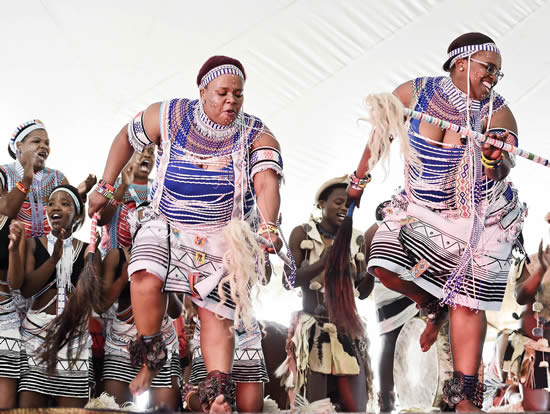 The NAC is an agency of the Department of Arts and Culture and is responsible for growing the arts industry on behalf of government.
The NAC is an agency of the Department of Arts and Culture and is responsible for growing the arts industry on behalf of government.
The NAC provides funding for projects, touring projects, residencies, conferences, studies and workshops. “We also support individuals and institutions through bursaries for national and international undergraduate and postgraduate studies,” said Chief Executive Officer of the NAC Rosemary Mangope.
The NAC has committed close to R1 million over the next three years to sponsor 90 choreographers from three provinces, namely Mpumalanga, the North West and the Northern Cape. Each province has contributed 30 choreographers.
“We are creating a platform to help beneficiaries understand and fulfil the compliance requirements and to increase their skills and knowledge around pitching and business presentations.”
For more information contact the National Arts Council on: 011 838 1383 or fax 011 838 6363 or email: info@nac.org.za
How to apply for funding
What is the maximum amount that one can apply for to the NAC for project funding?
The maximum amount for project funding is R250 000.
Does a NAC bursary cover accommodation?
It may cover accommodation, but is subject to budget availability. Priority is given to tuition fees.
Does the NAC fund film-related studies/projects?
No, the NAC does not fund film-related projects because they are outside of our legislated mandate.
How long does it take to process applications for funding at the NAC?
It takes a minimum of four months to process applications for project funding.
GO DIGITAL
GO DIGITAL nthabi
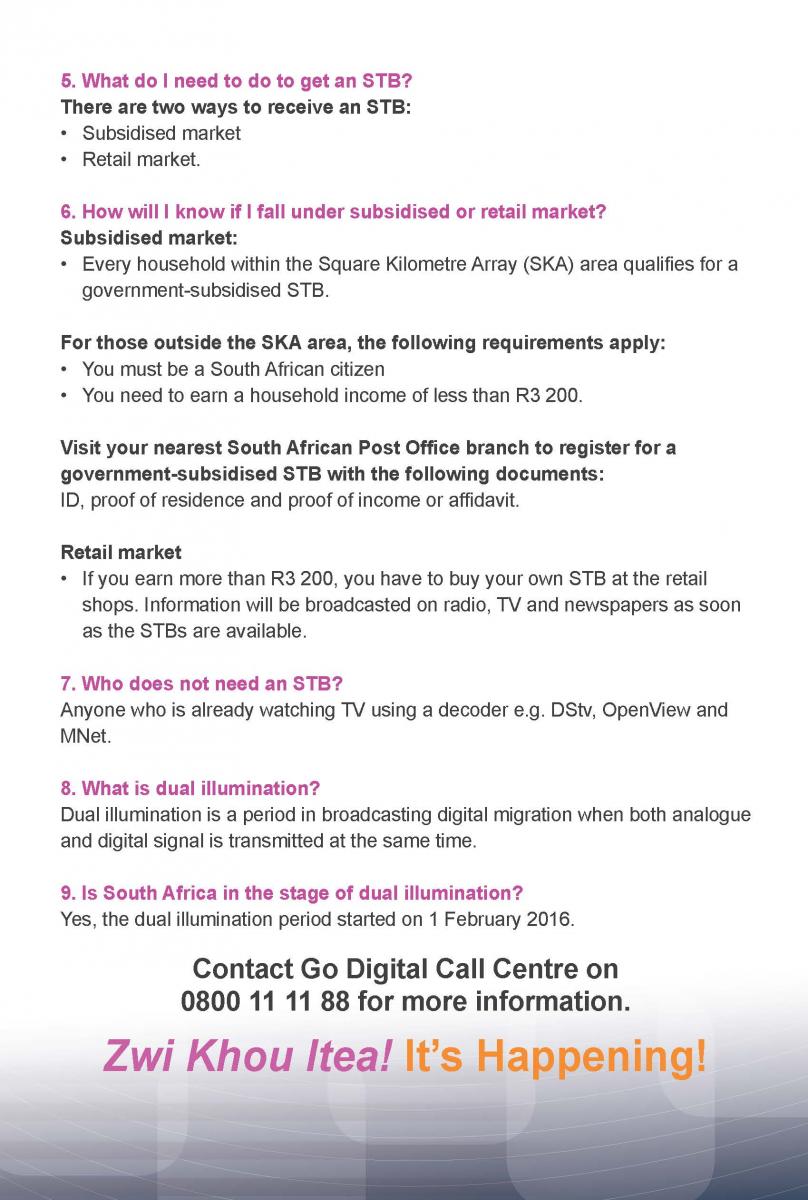
Sundowns to take on the world’s best clubs
Sundowns to take on the world’s best clubs Estelle GreeffSports, arts and culture
Following the win over Egyptian giants Zamalek, Mamelodi Sundowns will compete against the best clubs in the world.
Sundowns won the Confederations of African Football (CAF) Champions League and will represent South Africa at the FIFA Club World Cup to be played in Japan next month.
The games will be played in Osaka and Yokohama from 8 December - 18 December.
Mamelodi Sundowns is the first South African team to play in the FIFA Club World Cup and the second to win the continental championship after Orlando Pirates won the competition in 1995.
The FIFA Club World Cup is a competition for clubs that won their continental competitions.
Sundowns will compete against Real Madrid (Spain) representing Europe, the winner of the Japanese League representing Asia, Atletico Nacional (Colombia) representing South America, Club America (Mexico) representing North America, Mexico and Carribean Islands, and Auckland City representing New Zealand, and the winner of the Asian Football Confe- deration.